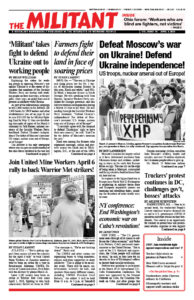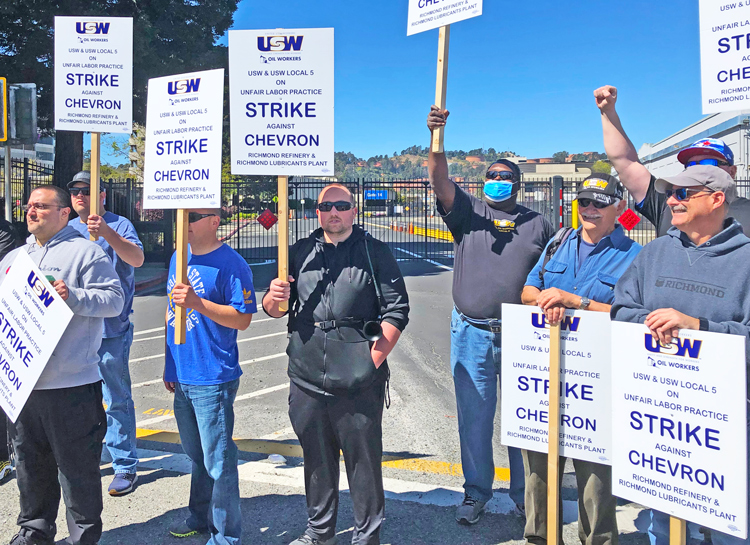RICHMOND, Calif. — More than 500 workers, members of United Steelworkers Local 5, went on strike March 21 at the Chevron refinery here in a fight over work schedules, safety and wages.
Workers on the picket line that day told this Militant worker-correspondent they are fed up with being pushed to work long hours of overtime, including being on call to come in on some days off. They want more time with their families and for Chevron to hire additional workers.
“If we had more people and could get a better pay rate, maybe our members wouldn’t feel obligated to come in and work as many as 70 hours a week to make ends meet,” union representative B.K. White told the press. “We don’t believe that is safe.”
The USW reached a national pattern agreement with the oil industry Feb. 25 that included wage increases of from 2.5% to 3.5% a year. Workers at the Richmond refinery are among the 200 bargaining units that are now negotiating over local issues. Given the high cost of living in the Bay Area, the rising cost of workers’ medical plans and ravaging inflation, they’re asking for a larger wage increase.
“What we are demanding is far below today’s inflation,” said striker Michael Perry, a rigger who operates cranes at the refinery. He said the cost of his commute to work is now $130 a week, double what he paid a year ago.
The company refused to budge on its “last, best and final” offer and wouldn’t come back to the bargaining table after workers voted it down. In a further insulting move, they bused workers out of the plant hours before the strike was to begin, stationing a fleet of cop cars to meet them near the employee parking lot.
The last strike at the refinery, which produces 13% to 14% of the state’s refining capacity, was in 1980.
Joel Britton, a former process operator at Chevron’s El Segundo refinery and the Socialist Workers Party candidate for governor of California, joined the picket line. “We need to build the broadest solidarity with this strike,” Britton told workers. “Strengthening our unions is what’s needed. Organizing independently, not relying on Democratic or Republican politicians.”
Britton said that as more workers join fights for safe working conditions — including sustainable schedules — and wages that keep up with rising prices, “our class consciousness will grow and a basis will be laid for building our own party, a labor party.”


